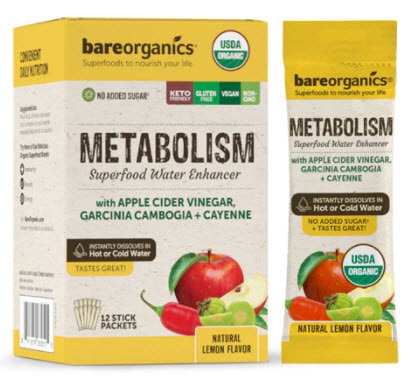Many of us stuff ourselves at the Thanksgiving dinner table. It’s a once-a-year feast that, on average, adds 3,000 calories to your diet.
But some folks also overindulge at various times of the year — other holidays, birthdays and even run-of-the-mill days. So, why is it that we overeat? The answer isn’t as simple as whipping up a two-egg omelet.
“Scientists have been working for decades to try to explain why we overeat,”
says Emmanuel Pothos, associate professor at Tufts University’s School of Graduate Biomedical Sciences.
It’s not entirely a mystery, though. Psychology Today
suggests overeating is “habitual and behavioral.”

“It takes about 20 minutes for your brain to send a signal to the stomach to let you know that you’re full. Overeating occurs when you continue to eat beyond this point of fullness,”
says Erma Levy, a research dietitian at the University of Texas MD Anderson Cancer Center.
According to Psychology Today, overeating can be a learned behavior that some people use as a mechanism to deal with emotions like sadness, disappointment or frustration. “It serves as a good distraction and can be an effective [but ill-advised] way to keep emotions at bay,” the publication says.
Furthermore, Psychology Today explains that overeating might stem from an addiction to snacking or to certain foods. For example, some sweet, salty or crunchy foods might trigger cravings that, if satisfied, deliver a druglike euphoria. This behavior can repeat itself, resulting in a pattern of overeating. On top of that, people can come up with rationalizations to continue overeating, such as “Healthy food doesn’t taste as good” or “I’m treating myself.”
“One reason we overeat is because food can stimulate the reward system in our brains,” Sai Das, a scientist with Tufts’ Human Nutrition Research Center on Aging, tells the university’s Health & Nutrition Letter. “If eating particular foods makes us feel good, we are more likely to want more.”
The Bariatric Medical Institute of Texas
cites three other potential reasons for overeating:
- Deprivation. If you’re following a diet that’s too restrictive or you make yourself skip meals, you could be putting yourself on the path toward overeating. “When you feel starved, you’re apt to binge, eating too many calories and making poor food choices,” the institute says.
- Alcohol consumption. The institute points to research that found two-thirds of the women studied were more sensitive to the smell of food after consuming alcohol and subsequently ate more at lunch.
- Stress. Constant stress can boost your body’s production of cortisol, a hormone that can fire up your appetite and prompt overeating.
Perhaps most concerning is that overeating can be connected to an eating disorder. For example, someone coping with binge eating disorder — the most common eating disorder in the U.S. — repeatedly eats large quantities of food, often quickly, without a sense of control and to the point of discomfort,
according to the National Eating Disorders Association.
“Unlike other eating disorders, people who have binge eating disorder do not throw up the food or exercise too much. Binge eating disorder is a serious health problem, but people with binge eating disorder can get better with treatment,” the federal
Office on Women’s Health says.
What are the consequences of overeating?
Overeating can lead to severe health issues, according to the MD Anderson Cancer Center:
- Eating too much can cause you to become overweight or obese. This, in turn, can increase your risk of cancer and other health problems.
- Eating too much can trigger slower digestion. “If you overeat frequently, over time, this slowed digestive process means the food you eat will remain in the stomach for a longer period of time and be more likely to turn into fat,” the center says.
- Eating too much can interrupt your sleep. “Your circadian clock, which controls your sleep cycles, causes your sleep and hunger hormone levels to rise and fall throughout the day,” the center says. “Overeating can upset this rhythm, making it hard for you to sleep through the night.”
How can you stop overeating?
The MD Anderson Cancer Center offers these tips to prevent overeating:
- Eat sensibly. Pay attention to portion sizes, and stay away from easily overeaten processed foods.
- Fill up on fresh fruits and vegetables, whose fiber can help you feel full.
- Eat from a salad plate instead of a dinner plate to help control portion sizes.
- Avoid distractions when you eat, such as watching TV or using electronic devices. Focusing on the meal will make you more aware of when you’re full.
- Eat slowly and put down your fork between bites. This mindful eating habit will slow you down and make it easier to realize when you’re full.
- Drink water before, during and after meals.
- Plan meals.
- Keep a food journal to track positive or negative habits.
If you suspect you’re experiencing a disorder that’s causing you to overeat, consider getting treatment. Contact the
National Eating Disorders Association for more information.
Featured Product

 “It takes about 20 minutes for your brain to send a signal to the stomach to let you know that you’re full. Overeating occurs when you continue to eat beyond this point of fullness,” says Erma Levy, a research dietitian at the University of Texas MD Anderson Cancer Center.
According to Psychology Today, overeating can be a learned behavior that some people use as a mechanism to deal with emotions like sadness, disappointment or frustration. “It serves as a good distraction and can be an effective [but ill-advised] way to keep emotions at bay,” the publication says.
Furthermore, Psychology Today explains that overeating might stem from an addiction to snacking or to certain foods. For example, some sweet, salty or crunchy foods might trigger cravings that, if satisfied, deliver a druglike euphoria. This behavior can repeat itself, resulting in a pattern of overeating. On top of that, people can come up with rationalizations to continue overeating, such as “Healthy food doesn’t taste as good” or “I’m treating myself.”
“One reason we overeat is because food can stimulate the reward system in our brains,” Sai Das, a scientist with Tufts’ Human Nutrition Research Center on Aging, tells the university’s Health & Nutrition Letter. “If eating particular foods makes us feel good, we are more likely to want more.”
The Bariatric Medical Institute of Texas cites three other potential reasons for overeating:
“It takes about 20 minutes for your brain to send a signal to the stomach to let you know that you’re full. Overeating occurs when you continue to eat beyond this point of fullness,” says Erma Levy, a research dietitian at the University of Texas MD Anderson Cancer Center.
According to Psychology Today, overeating can be a learned behavior that some people use as a mechanism to deal with emotions like sadness, disappointment or frustration. “It serves as a good distraction and can be an effective [but ill-advised] way to keep emotions at bay,” the publication says.
Furthermore, Psychology Today explains that overeating might stem from an addiction to snacking or to certain foods. For example, some sweet, salty or crunchy foods might trigger cravings that, if satisfied, deliver a druglike euphoria. This behavior can repeat itself, resulting in a pattern of overeating. On top of that, people can come up with rationalizations to continue overeating, such as “Healthy food doesn’t taste as good” or “I’m treating myself.”
“One reason we overeat is because food can stimulate the reward system in our brains,” Sai Das, a scientist with Tufts’ Human Nutrition Research Center on Aging, tells the university’s Health & Nutrition Letter. “If eating particular foods makes us feel good, we are more likely to want more.”
The Bariatric Medical Institute of Texas cites three other potential reasons for overeating:




